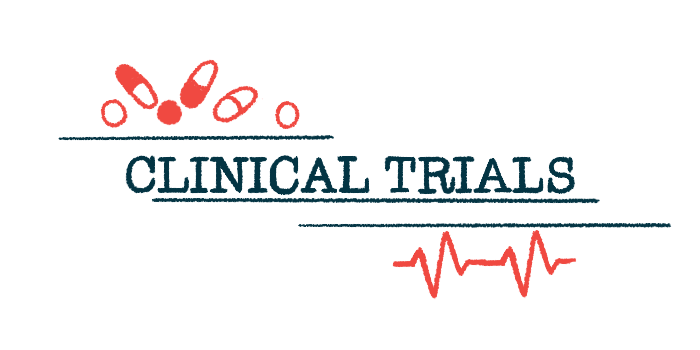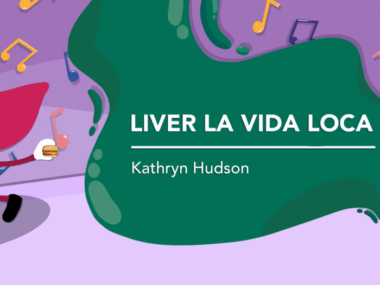Survodutide lowers severe fatty liver disease severity in Phase 2 trial
Therapy's activation of proteins should aid fat burning, reduce hunger
Written by |

Weekly injections under the skin of the experimental therapy survodutide significantly reduces the severity of metabolic-associated steatohepatitis (MASH), a severe form of fatty liver disease, and liver scarring, or fibrosis, in adults.
That’s according to topline, one-year data from a Phase 2 clinical trial (NCT04771273) that showed the study met its main and secondary goals. Most survodutide-treated patients (83%) saw a significant MASH reduction, but only 18.2% of those on a placebo achieved it.
“I am thrilled to see these statistically significant results from the Phase II trial of survodutide in MASH and fibrosis,” Arun Sanyal, MD, the trial’s principal investigator at Virginia Commonwealth University School of Medicine, said in a press release from Boehringer Ingelheim, which is leading the therapy’s clinical development after coinventing it with Zealand Pharma.
“These data position survodutide as a potential leading treatment for a population with great unmet medical needs, and will bring hope to people living with MASH and with fibrosis,” said Sanyal, who is a professor of medicine, physiology and molecular pathology at Virginia Commonwealth University.
Carinne Brouillon, head of human pharma at Boehringer, said the MASH show “survodutide has potential to become a best-in-class treatment.”
Detailed trial results will be presented at a scientific meeting in the next few months, according to Boehringer.
“I am looking forward to sharing further detail on key secondary [goals], including the percentage of adults who saw an improvement in fibrosis, at a congress in the first half of this year,” Sanyal said.
What does survodutide do in severe fatty liver disease?
Survodutide is designed to simultaneously activate two receptor proteins — GLP-1 and glucagon receptors. Activating the GLP-1 receptors is intended to reduce feelings of hunger and increase feelings of fullness, while activating glucagon receptors should increase how much fat is burned by the body and also may directly influence liver health.
“We believe [survodutide’s] true differentiator is the [activation] of the glucagon receptor … which works directly on the liver,” Brouillon said.
Survodutide received fast track status in the U.S. and priority medicine (PRIME) status in the European Union for treating MASH with fibrosis. The designations are meant to accelerate its clinical development and regulatory review.
Metabolic dysfunction-associated steatotic liver disease, or MASLD, is a disorder marked by the abnormal buildup of fat in the liver. MASH is a severe form of MASLD that’s marked by inflammation, which can progress to fibrosis that damages liver tissue and can interfere with its function. MASLD and MASH used to be called nonalcoholic fatty liver disease (NAFLD) and nonalcoholic steatohepatitis (NASH), respectively. The terminology was updated last year to better reflect the underlying cause of the disease and remove stigmatizing language.
The Phase 2 trial enrolled 295 adults with MASH and biopsy-proven liver fibrosis. The participants were randomly assigned to weekly injection under the skin of either one of three doses (2.4, 4.8, or 6 mg) or a placebo for about a year. During the first six months, those on survodutide had their dose gradually increased up to one of the three doses, which was maintained for the rest of the study.
The main goal was to assess how many patients had meaningful MASH reduction without fibrosis worsening. MASH lessening was defined as a reduction of at least 2 points on the NAFLD Activity Score (NAS), which is based on a liver biopsy where the amount of fat buildup in liver tissue along with signs of liver damage is assessed.
According to Boehringer, up to 83% of patients given survodutide met this goal over just 18.2% of those on a placebo. The therapy also outperformed a placebo on secondary measures, including a reduction in liver fat content and the extent of liver scarring.
All survodutide doses were generally safe and well tolerated, without unexpected safety or tolerability issues.
“We are very excited by the positive topline Phase 2 trial results for survodutide in MASH announced today by Boehringer Ingelheim and we look forward to the planned disclosure of the full data at a scientific congress in the first half of this year,” David Kendall, MD, chief medical officer at Zealand Pharma, said in a separate company press release.
Boehringer is also developing survodutide for other metabolic health conditions. The therapy is in Phase 3 trials to test if it can promote weight loss in people with obesity, but Boehringer noted that MASH will be a priority in its development.
“In order to bring this potential treatment to the more than 1 billion people affected by interconnected cardiovascular, [kidney], metabolic diseases, we will move forward as quickly as possible in MASH,” Brouillon said.


